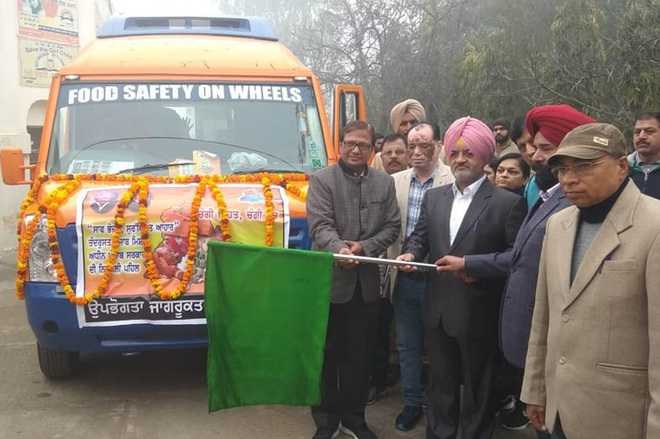Feb 4, 2019
Animal items seen in health supplements
Nutraceuticals are a mix of nutritional and herbal pharmaceutical ingredients.
Hyderabad: Animal origin ingredients and gelatine shells were found by Food Safety and Standards Authority of India (FSSAI) in health supplements and nutraceutical products sold in the market. The ingredients were not labelled as required and this misbranding and wrong labelling has been reported to FSSAI by independent food technologists who randomly test these foods in the market.
All state food inspectors have now been directed to collect random samples of these supplements and register cases against operators who are mixing non-labelled ingredients in these foods. FSSAI has also written to the state government recommending that those selling nutraceuticals (mix of nutritional and herbal pharmaceutical ingredients) and health supplements be checked from time to time to ensure that labelling regulations are adhered to.
Food labelling norms were changed in 2016, requiring nutraceuticals and health supplements to be labelled properly according to the categories defined. Parveen Jargar, joint director, regulatory compliance, FSSAI, says regulators have been given sufficient time to list the foods as for dietary use, medical purpose, functional foods and novel foods. “The labelling has to be accurate as it is found that these foods are highly preferred by health conscious people. They must know exactly what ingredients are in the foods,” he said.
Nutraceuticals are now under Codex regulations. Fourteen ingredients have been discontinued for lack of scientific data on their safety. These include raspberry, ketone, slica, paullinia cupana, pine bark, vitamin D3-veg, oxalobacter formigenes, phytavail iron and tea tree oil.
G.Raju, health inspector with the Institute of Preventive Medicine, says that currently health supplements are picked up for analysis based on complaints by customers. “We have so far got reports of growth of fungus, improperly packed containers and products. The misbranding complaints have been very few.”
Is your food safe? Pay Rs 50 to find out

Deputy Commissioner Manpreet Singh flags off a food safety mobile van in Fazilka.
FAZILKA: Manpreet Singh, Deputy Commissioner, recently flagged off a food safety mobile van for an on-the-spot verification of quality of food items. The mobile van has the facility of checking fat, solids, protein and other content, particularly in dairy products. All tests will be conducted at a nominal price of Rs 50. The administration will ply the van near bus stands, civil hospitals, railway stations and other places where such items are consumed in abundance. Civil Surgeon Dr Davinder Bhukkal said they would guide the residents about things to keep in mind while purchasing food items.
Schoolchildren discuss tobacco-free future
Around 250 children from over 350 Brihanmumbai Municipal Corporation (BMC) schools have come together to work towards a tobacco-free future as part of Bal Parishad, an annual event organised by NGO Salaam Bombay Foundation recently. This year’s event also added the topic of nutrition to make youngsters aware of healthy eating. February 4 is World Cancer Day.
“These children come from families where many members are frequent tobacco users. Thus, making these children aware of bad effects of tobacco and training them to have a healthy lifestyle can go a long way,” Tshering Bhutia, vice-president, projects (preventive health and research), of the foundation, said.
This was the 13th Bal Parishad which saw children putting forward questions about tobacco, food, and nutrition to officials from the Food and Drug Administration, BMC’s health department, and the Food Safety and Standards Authority of India.
One youngster asked about why sophisticated tobacco delivery systems like e-cigarettes are easily available. FDA’s joint commissioner Shailesh Adhav said they are presently focussed on making school premises tobacco free and taking action against the vendor. “We will have to tackle the sophisticated tobacco delivery systems later,” Mr. Adhav said.
A student asked about the availability of junk food to which Mr. Adhav said they cannot ban such food items but consumers should avoid buying them.
This year, the Bal Parishad presented a charter of demands to the State government for a tobacco-free school policy.
After the Bal Parishad in 2018, 11 tobacco-free school criteria were approved by the State’s education department, health department, and the National Tobacco Control Programme, and are being implemented.
Nine food samples sent for testing
Panchkula: The Panchkula health department took 9 samples from various sweet-meat shops and supermarkets to check the quantity of monosodium glutamate (MSG) mixed in food items. The team said the products caused serious health issues and the department was going to take serious action against those found using it.
Yogesh Sharma, chief medical officer (CMO), Civil Hospital, Sector 6, Panchkula, said along with food safety officer Shubhash Chandra, they had formed a team and were conducting special checks at various places in Panchkula district.
The team collected samples from Six Ten Super Market, MDC Sector 5; Orryo Sweet, Sector 5; Amar Roller Floor Mills, Industrial Area Phase-1; and Future Retail Limited, Sector 20.
Under the Food Safety and Standards Act, 2006, the samples collected from different places have been sent to a laboratory located in Karnal, while the products which were unfit for human consumption were destroyed on the spot by the team.
The officials further stated that the food and sweet makers used MSG to make their eatables delicious.
The CMO said: “Mixing of the MSG salt in food products is strictly banned. Strict action will be taken on the basis of the report.”
Subscribe to:
Comments (Atom)



